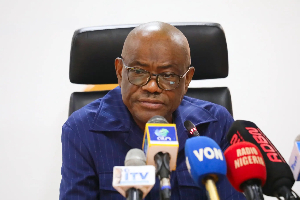The total value of capital importation into Nigeria dropped to $1.29 billion in the second quarter of 2020 from the $5.854 billion reported in the first quarter of 2020, latest data from the National Bureau of Statistics shows.
The NBS in its Q2 2020 Nigerian Capital Importation report released on Friday, the decrease by 77.88% was largely contributed by the COVID-19 pandemic and measures imposed globally to contain the spread of the virus.
According to the report, portfolio investment which had always performed well in previous quarters fell to the second-largest amount of importation by type, declining by 29.76% to $385.32 million.
“The total value of capital importation into Nigeria stood at $1,294.94m in the second quarter of 2020. This represents a decrease of -77.88% compared to Q1 2020 and -78.60% in Q2 2019.
“The largest amount of capital importation by type was received through Other investment, which accounted for 58.77% ($761.03m) of total capital imported, followed by Portfolio Investment, which accounted for 29.76% ($385.32m) and Foreign Direct Investment (FDI), which accounted for 11.47% ($148.59m) of total capital imported in Q2 2020.”
As contained in the report, United Kingdom retained the top source of capital investment in Nigeria in the review quarter, with $428.83 million, accounting for 33.12% of the total capital inflow in Q2 2020.
“By Destination of Investment, Lagos state emerged as the top destination of capital investment in Nigeria in Q2 2020 with $1,130.49m. This accounted for 87.30% of the total capital inflow in Q2 2020.
“By Bank, Standard Chartered Bank Nigeria Limited emerged at the top of capital investment in Nigeria in Q2 2020 with $425.21m. This accounted for 32.84% of the total capital inflow in Q2 2020,” the report stated.
COVID-19 Impact. The country’s Foreign Direct Investment in the quarter stood at $148.59 million, it’s quarterly lowest in about 3 years, largely due to the ravaging impact of the COVID-19, which saw lots of investors play a wait-and-see game at the initial stage of the outbreak this year.
Although the figures in Q1 was at $214.25 million, the Q2 remittance shows the effect of the global economic lockdown in the country.
A 2020 report by the United Nations Conference on Trade and Development (UNCTAD) ranked Nigeria third host economy for FDI in Africa, behind Egypt and Ethiopia, with remittances totaled to $3.3 billion in 2019.
The Federal Government has embarked on a few reforms in policies including the ease of doing business, Companies and Allied Matters Act, and a host of others.
In 2016, President Muhammadu Buhari set up the Presidential Enabling Business Environment Council (PEBEC) to come up with modalities to reduce the bottlenecks and constraints in running a business by local and foreign investors in the country.
Part of the result was seen in the World Bank’s Doing Business 2020 index, where Nigeria ranked 131, moving up 15 places from its 2018 spot, tagged as one of the most improved economies in the world.
Business News of Friday, 28 August 2020
Source: channelstv.com













